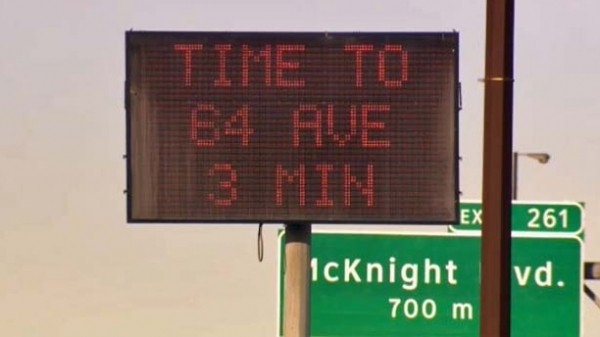A stretch of highway known as the Deerfoot Trail in Calgary, a city in the province of Alberta, Canada, has been outfitted with a rather unique traffic monitoring system. Instead of relying on road sensors or other common methods, this $400,000 system detects Bluetooth signals from mobile phones, headsets and even built-in vehicle entertainment systems to gauge traffic congestion.
The city installed 15 different sensors along the stretch of highway to keep up with the MAC address on individual devices. When a vehicle crosses a sensor, the system updates how long it took to travel from the last sensor. The setup reportedly uses a special algorithm that ignores Bluetooth signals from pedestrians or other random sources that might otherwise skew traffic data.

Traffic information is then delivered to drivers via overhead signs along the route, letting people know roughly how long it will take to get from their current location to the next exit.
Gord Elenko, manager of the Roads Traffic division for the city, says the system will enable drivers to make informed decisions with regards to route planning in real time. He hopes the service will eventually help reduce congestion and lower driver frustration as well.
Officials point out that the sensors don't pose any personal security risks. The monitors don't have access to any personal data and the signals they pick up are encrypted for further privacy.
Advanced traffic management systems engineer Michael Gray said the system maintains a list of MAC addresses but there is no way to determine which vehicles they originated from and subsequently, who they belong to.